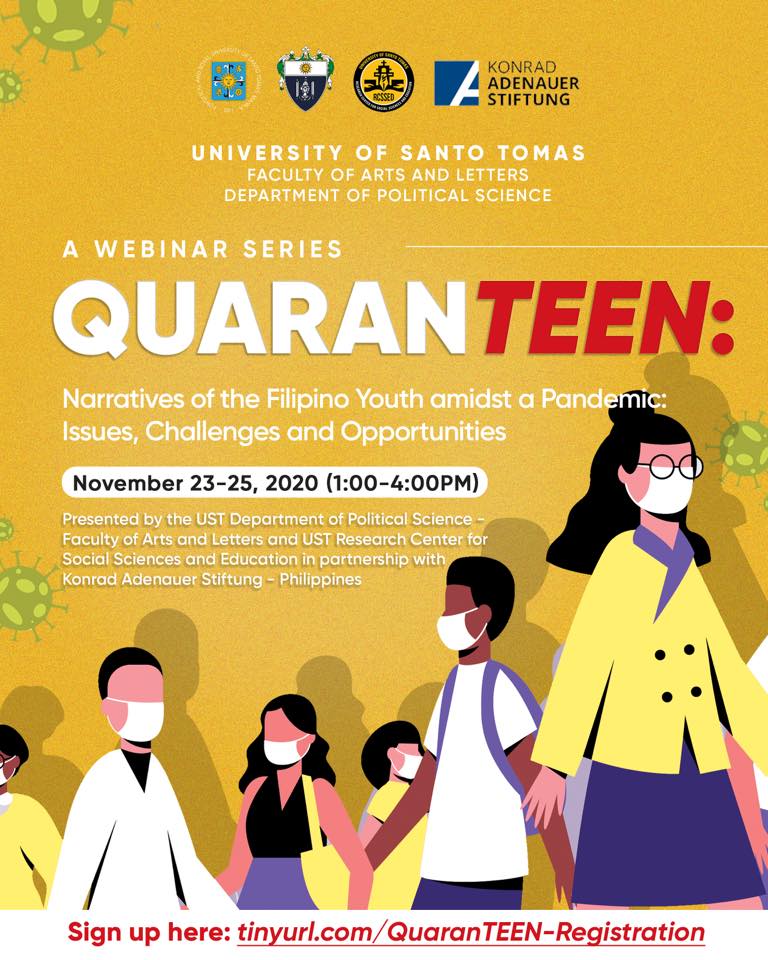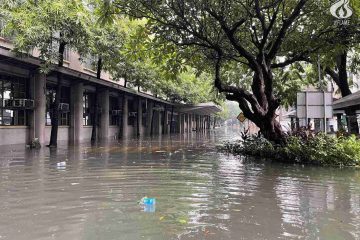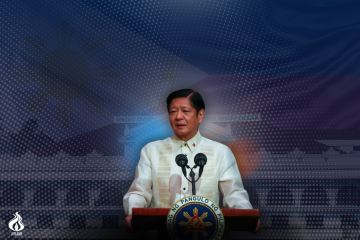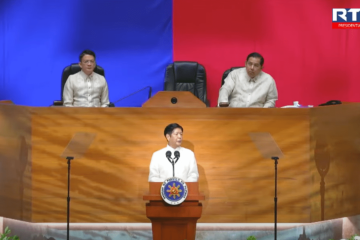
POLITICAL SCIENCE educators have emphasized the challenges of mobility restrictions and the importance of students’ ‘necessary voice’ in dealing with the health crisis in a webinar conducted by the UST Department of Political Science last Nov. 23.
Department of Political Science Asst. Prof. Louie Benedict Ignacio noted in his study “Mobility, Teens, and Quarantine: Covid-19’s Impact on the Mobility of Students and Young Individuals” that mobility restriction has a long term effect on personal, social, and economic characteristics of an individual.
Ignacio said that it has compromised the students’ ‘sense of freedom’, an essential component for social development through constant engagement to others belonging in the same age group.
“[The] inability to move around has an effect on physical and mental health issues. [Individuals] living in a room with limited space and not allowed to go out [shows] depressive symptoms,” he said.
He also mentioned that the implementation of lockdown in the country has created severe issues on the economic status of most students and families, affecting health and education.
“Students from various [social] classes experience mobility restrictions differently. [While] lockdowns were implemented in schools, forcing students to finish the classes in their respective residences, students from less economically-stable families had to endure difficulties in ensuring enough [basic resources] to last for an entire duration of the lockdown,” Ignacio said.
“These families were not prepared more than usual and the absence of constant support of their family also contributed to issues on nourishment due to lack of food,” he said.
“The conditions that the students were in do not allow them to continue studying, hence, delay in education may hinder degree acquisition,” he added.
Ignacio also said that the fear of contracting the virus also amplifies anxiety levels that negatively affect students’ well-being.
Student activism, the necessary noise
Student activists find the current government’s response to the global pandemic filled with unnecessary actions, Political Science Department instructor Anthony Andrew Divinagracia said.
In his research paper “How Student Activists viewed the Duterte Administration’s “Medical Populism” and “Other Unnecessary Actions” amid the COVID-19 pandemic: An Exploratory Study,” Divinagracia elaborated the echo chambers of the Philippine government and the necessary noise of student activists.
Divinagracia described Duterte’s populism as an “echo chamber” wherein it has built penal populism rooting from collective sentiments of fear and anxieties that attribute blame to both offenders and political establishment.
Student activists and rejectionists fight against this so-called echo chamber may it be through Twitter wars online or in the streets, both in a non-violent manner, Divinagracia said.
All respondents in his study, student activists ranging from 18 to 25 years old, largely viewed Duterte’s military-led solution to the COVID-19 crisis as a “dramatization of the crisis” by projecting the health issue as a “war” that must be fought by the country’s military.
The respondents criticized the administration’s problematic distribution of aid to families, harsh warning to health workers, ABS-CBN shutdown, continuation of the anti-drug campaign, and Manila Bay’s dolomite beach project among several other “irresponsible” and “irrelevant” actions during the global pandemic.
While it is true that the government could have done more, this entails that any sitting president should have ready answers and solutions to the worst problems that might confront the country, said Divinagracia.
Peripheral issues such as personal and family problems that are distracting student activists from holding the government accountable for its botched pandemic response and hampering their effectiveness in political struggle only implies that the establishment has succeeded in muting their collective voice, he concluded.
“QUARANTEEN: Narratives of the Filipino Youth amidst a Pandemic” is a three-day webinar series which aims to discuss the issues, challenges, and opportunities that the Filipino youth experiences in the new normal.
The webinar was presented by the UST Political Science Department and UST Research Center for Social Sciences and Education in partnership with Konrad Adenauer Stiftung-Philippines. F



